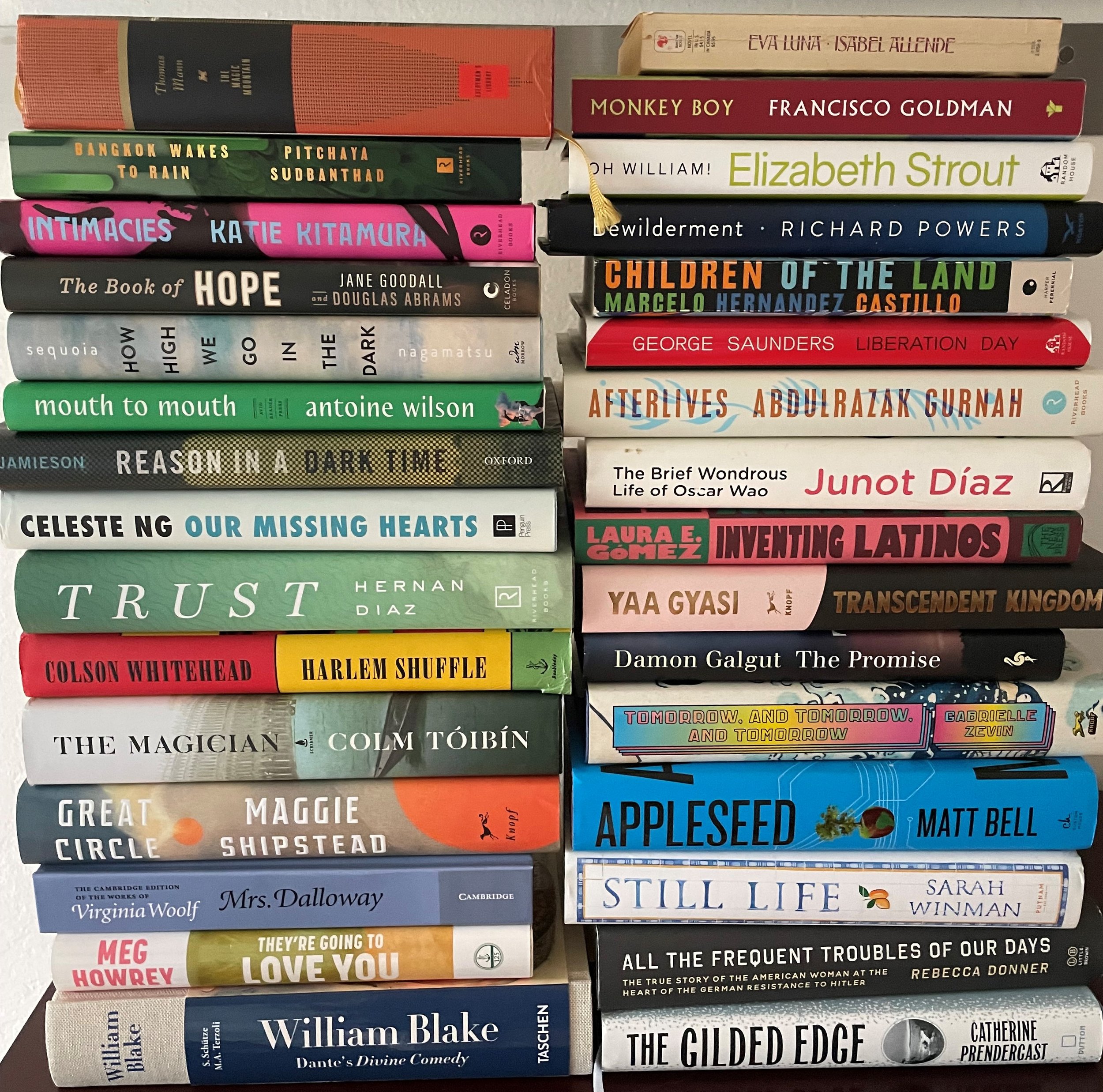Happy New Year from the Analogocene
Dear friends and fellow readers,
A very Happy New Year. Here on the Monterey Bay, we witnessed the end of 2022 by candlelight, after a storm knocked out the power in our neighborhood. It’s still out, so, with the exception of this email, 2023 has been an analog year so far. I have a flashlight for reading and am glad to be back in the pre-digital age, although I do have a new appreciation for the miracle of refrigeration.
I spend a lot of time thinking about the effects of climate change on all beings, including human ones, and the power outage, which was precipitated by the kind of extreme weather event that no longer deserves the qualifier, brought those thoughts to the fore. I’m not a big fan of New Year’s resolutions, because it’s too easy to turn them into that self-improvement project we secretly know we’ll bomb. However, I do have lots of ideas for the upcoming year, and the one that won’t leave me alone is a Climate and the Environment book group like the one I facilitated last year: a space, via alternating fiction and nonfiction readings, to contemplate the changing world and our place within it. Whether or not you join a formal group, I hope you’ll find the right next climate book for yourself. I made some suggestions last year, and if you’d like more, please ask.
As an alternative to resolving to be better in 2023, I took inventory of one important aspect of 2022: my reading. The pile above is most of it, except a few e- and audiobooks. I think I learned to read a little better in 2022. That is, I worried less and trusted more that I would remember the book after I’d set it down — something I used to fret about when I was juggling several books for my groups. I also felt my concentration strengthen, not every moment, not monotonically, but in the main. And I went through the wonderful, time-annihilating experience of reading Thomas Mann’s The Magic Mountain for the first time. As a result, I thought more that I ever have about World War I and the cultural conditions that led to it. Also: freedom, death, the rot inside bourgeoise living, and of course, the nature of time. A round of applause for the writers book group who finished the novel with me (or will soon). Other highlights of my reading year are the novels Trust by Hernan Diaz, Intimacies by Katie Kitamura, Appleseed by Matt Bell, and The Promise by Damon Galgut. I’m grateful to my book groups for great discussions of those and others. I’m also grateful to Matt Bell and Pitchaya Sudbanthad for a fascinating discussion of Appleseed. Finally, I must heartily thank Antoine Wilson, author of the riveting Mouth to Mouth, for his guest appearance at my groups.
On the nonfiction front, it was a huge pleasure to host Maud Newton and Laila Lalami discussing Newton’s Ancestor Trouble: A Reckoning and a Reconciliation in October and Rebecca Donner and Sarah Stein discussing Donner’s All the Frequent Troubles of Our Days in January.
For the next two weeks, you can download the recordings of Newton’s event and Bell’s event for free. (Sadly, I forgot to record Donner’s.)
I’ve learned that I really have no idea what a year will bring, but I do at least know a little about what January has in store. For my first in-person book event, I’m thrilled to be in conversation with Meg Howrey on January 17, 6pm, at BookWorks bookstore in downtown Pacific Grove. I love her new book, They’re Going to Love You, for its insightful and nuanced rendering of complicated family relationships, its ability to transport me to the early 1980s and the terrifying rise of the AIDS crisis, and the tremendous authority with which it immerses me in the world of professional ballet. If you’re in the Monterey Bay area, I hope you’ll come, chat with Meg, and get a signed copy of her book. In late January, I’ll be in Los Angeles to see some of you in person, for the first time since the start of the pandemic. Lately I’ve been craving less Zoom and more face-to-face, and I can’t wait to see you. And finally, one more thing on the near horizon: there are still a few spaces for the Fiction Writing Retreat with Mark Sarvas, March 30 - April 2.
For now, I’m going to try to enjoy the benefits of the Analogocene. Whatever era you inhabit in these opening days of 2023, I hope they support the full enjoyment of your reading and writing. I hope, too, to cross paths with all of you in the coming year.
Yours in all things literary,
Jennifer
PS. I’m editing this email on my phone, so please forgive typos.



